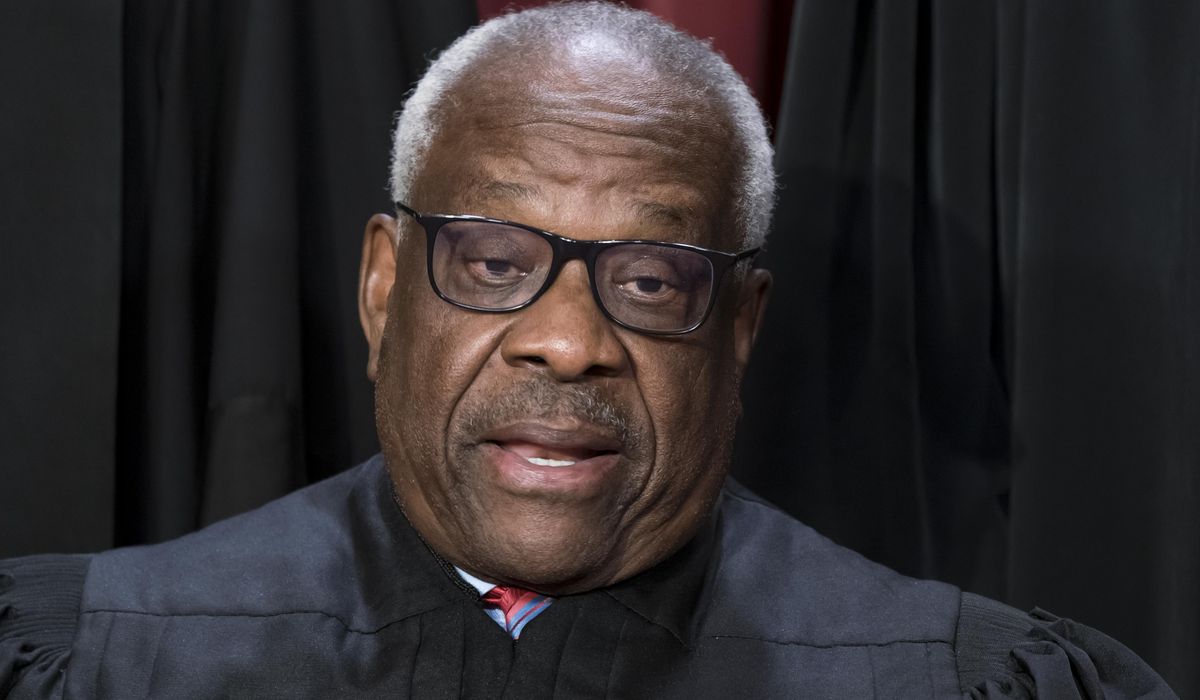


The Supreme Court on Monday issued a formal code of conduct for itself, after months of criticism from liberal advocates targeting some of the conservative members of the bench and accusing them of unprofessional relationships with billionaires.
In a 15-page press release, the nine justices said they follow certain requirements for recusal — such as not sitting on a case where a relative or spouse is involved. They said they have always followed rules similar to other federal courts, but decided to put it on record to avoid criticism.
“The absence of a Code…has led in recent years to the misunderstanding that the Justices of this Court, unlike all other jurists in this country, regard themselves as unrestricted by any ethics rules,” the statement said. “To dispel this misunderstanding, we are issuing this Code, which largely represents a codification of principles that we have long regarded as governing our conduct.”
The move comes after Senate Democrats threatened to subpoena conservative allies of the justices, and after a series of reports that some justices accepted lavish gifts.
Democrats have mostly targeted Harlan Crow, a GOP megadonor and friend to Justice Clarence Thomas, and Leonard Leo, an influential conservative judicial activist.
Republicans have said the threat of subpoena for information about financial relationships with the justices was an effort to delegitimize the high court.
Senate Democrats have been going back and forth with Mr. Crow for months about his financial relationship with Justice Thomas.
In May, Democrats on the Senate Judiciary Committee asked Mr. Crow to provide detailed information about his friendship with Justice Thomas and to detail certain gifts or expenses he’s made on the jurist’s behalf.
Mr. Crow, through his attorneys, declined to answer some of the inquiries, saying it suggested a separation of powers conflict.
Democrats on the Judiciary Committee claim Mr. Leo refused to provide the committee with information about his relationship with the justices.
The requests have come after a series of news articles about Justice Thomas and his friendship with Mr. Crow, a billionaire real estate developer.
ProPublica reported that Mr. Crow paid private school tuition at Hidden Lake Academy and Randolph-Macon Academy for Justice Thomas’ great-nephew, whom the justice took in to raise at the age of 6.
The tuition total could have cost more than $150,000, according to ProPublica. Justice Thomas did not disclose the payments in his financial disclosure forms, and the news outlet suggested the omission runs afoul of the ethics standards required of a federal judge.
Scrutiny of the justices has continued in recent months.
ProPublica reported in April that Justice Thomas did not disclose that he took multiple luxury vacations with Mr. Crow, or that Mr. Crow purchased the home of Justice Thomas’ mother even though she continued to reside there.
The Washington Post followed with an April 16 article examining what appeared to be a typo on the justice’s financial disclosure related to family real estate holdings, in which he reported rental income to Ginger Ltd. Partnership instead of Ginger Holdings LLC.
The New York Times followed with a piece critical of Justice Thomas and other Republican appointees collecting salaries to teach courses at George Mason University’s Antonin Scalia School of Law.
Justice Thomas has defended his friendship with Mr. Crow and said he consulted with colleagues about disclosure requirements and didn’t skirt any rules.
Mr. Crow, in a statement through his office earlier this month, said the move by Democrats to issue a subpoena is disappointing.
Mr. Leo has said Democrats are seeking to destroy the Supreme Court. In a letter earlier this month to the committee, Mr. Leo said the requests appear to be political retaliation in violation of the Constitution.
Other articles involving Justice Alito and ethics concerns have also surfaced involving luxury travel hosted by billionaires.
Justice Alito has pushed back, denying any wrongdoing.
The high court has not had a mandatory code of ethics — until now — even though lower court judges are expected to avoid impropriety or do business with anyone who may come before the bench.
Chief Justice John G. Roberts Jr. said in the past that the high court has generally followed the Judicial Conferences’ Code of Ethics that are binding on lower courts — but not the Supreme Court — since 1991.
In July, Democrats on the Judiciary Committee advanced a bill that would require the high court to impose a code of ethics on itself.
But so far, that legislation has not received a vote on the Senate floor, where it would likely not meet the 60-vote threshold needed to overcome a filibuster in the 51-49 chamber.
The justices beat the Senate to the punch, though, releasing their own code ahead of any proposed vote.
• Alex Swoyer can be reached at aswoyer@washingtontimes.com.
